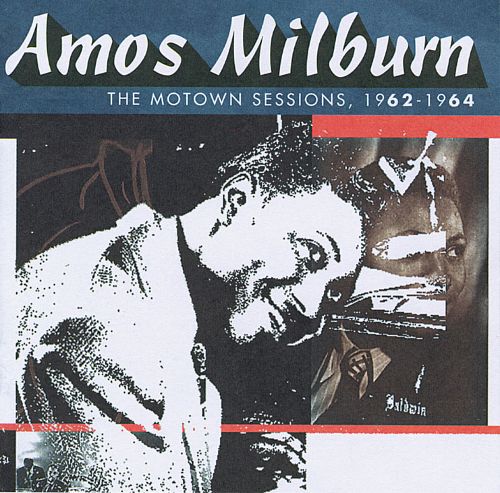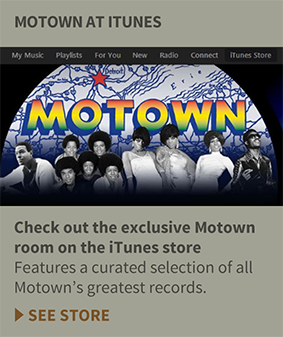ARTIST OF THE WEEK
Considered one of the unsung heroes of rock ‘n’ roll, Amos Milburn only released two singles and an LP for Motown. It was nine years after he ended a long run of greatly influential blues-infused hits. While none of his Motown material became hits, he displayed much of the same talent that fans gobbled up in the previous decade.
FAST FACTS:
- Motown Milestone: the blues boss’ first single for Motown, “I’ll Make It Up To You Somehow,” is released on March 4, 1963, swiftly followed by an album.
- First Hit: “Chicken Shack Boogie.”
- Biggest Hits: “Bad, Bad Whiskey.”
- Biggest Album: Million Sellers
- Career Highlight: In an 11-year span, Amos cuts what author Nick Tosches called, “some of the toughest records in the history of rock ‘n’ roll, records built on raw electric guitar, drunken tenor sax (usually played by the great Maxell Davis) and Milburn’s own piano and voice.”
KEY INFORMATION:
- From Houston, Texas, the largely self-taught pianist/singer Amos Milburn burns up the R&B charts starting in late 1948 with his first hit “Chicken Shack Boogie.” He runs off a string of 19 Top 10 singles through 1954, many of which celebrate good times, partying and alcohol. Among his best known songs in that vein are “Bad, Bad Whiskey,” “One Scotch, One Bourbon, One Beer,” “Sax Shack Boogie,” “Good Good Whiskey,” “Let’s Have A Party,” “Thinkin’ and Drinkin’,” Vicious, Vicious Vodka,” “Rock Mr. Jelly,” “Let Me Home Whiskey” and – lamenting a doctor’s orders to change his habits – “Milk and Water.” Milburn’s piano-based R&B becomes an important source of inspiration for Fats Domino’s pioneering efforts in the early rock ‘n’ roll era.
- In 1962, Imperial releases an LP of his biggest songs and the liner notes proclaim, “Critics have said Amos reflects what people around him are saying, drinking and feeling.”
- In the early ’60s, with Motown still struggling to survive, company founder Berry Gordy releases a number of blues records which sell modestly around Detroit. The local singles help Gordy generate needed cash as he nurtures home-grown artists for the youth market. By the time he signs Milburn in the second half of 1962, he has begun to outgrow that need. But he’s unable pass up a chance to add the once-popular piano pounder.
- A second Milburn single, “My Daily Prayer,” also recorded in October 1962, is scheduled for release in June 1963. “I’ll Make It To You Somehow” is again tapped as the B-side. It remains unclear whether commercial copies are ever pressed and distributed.
- Between that first October 1962 session and a few more the following month, Milburn records the tracks that make up his July 1963 Motown LP release, Return Of The Blues Boss. The set includes remakes of his classic songs “Bad, Bad Whiskey,” One Scotch, One Bourbon, One Beer,” and “In The Middle Of The Night” as well as other material and, while it does not become a hit, it is clear that Milburn and the Funk Brothers house band find a sympathetic groove.
- Milburn goes into Hitsville in 1964 for a session produced by Andre Williams, in the last Motown recordings for both men. Nothing is released.
- In 1969, Motown compiles several early ’60s blues tracks from various company artists and releases them as the LP Switched On Blues. It’s issued on the Soul label. The final track is Amos’s “My Daily Prayer.”
- Confessing that he lived the fast, alcohol-fueled life about which he sung, Milburn suffers from health issues in the ’70s, leading to a pair of strokes and the amputation of a leg. In 1979, a third stroke causes his death at the age of 52.
- In 1996, Motown releases a CD, The Motown Sessions: 1962-1964, that contains all the tracks on his lone LP for Berry Gordy’s company as well as a number of unreleased tracks, including a remake of “Chicken Shack Boogie” and the tracks he did with Andre Williams. In the booklet, liner notes writer – and former member of Brownsville Station – Michael “Cub” Coda called the material cut with the Funk Brothers “light years ahead of his earlier style in the sophistication department.”





